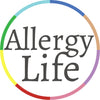Food allergies are a specific IgE-mediated immune-related response (allergic reaction) caused by certain food substances that can lead to symptoms that can be mild to severe and life-threatening. Food allergies impact a lot of people, from birth to adulthood.
Almost any food can cause an allergic reaction, but certain foods account for most food allergies: Peanuts, Tree Nuts, Wheat, Milk (Dairy), Egg, Shellfish, Finned Fish, Soy, Lupin and Sesame Seeds.
Signs and symptoms can vary from person to person, and if you think you may have a food allergy, it's important to seek diagnosis, examination and advice by a qualified health care provider.
Seeking ways to reduce risks and safely navigate everyday situations can allow people with food allergies to live safer and happier. This includes steps and actions taken by those who encounter people with food allergies.
In this article, we will explore how you can reduce risks and navigate allergy situations through simple communication and self-care actions if you have food allergies or care for someone who does.
We will also explore simple communication and risk-reducing actions that can be taken by those who don't have food allergies but may encounter someone who does.
CARRY, SHOW AND TELL if you have Food Allergies
If you have food allergies or care for someone who does, Carry, Show & Tell.
What is it?
Carry, Show & Tell encourages anyone with food allergies to follow three steps to communicate their allergies simply and effectively to reduce risks and be prepared in the case of a reaction.
Caring for someone with food allergies? Carry, Show and Tell on their behalf.
How to Carry, Show & Tell?
Step 1- CARRY to be Prepared
- When you have food allergies, it's always important to CARRY your Emergency Medication, such as an EpiPen, Anapen or other medications for your food allergies.
- Along with emergency medication, it's also important that you CARRY your Visual Allergy Alert with you.
-
What is a Visual Allergy Alert? A Visual Allergy Alert is a visible aid for you to Show and Tell (present) your food allergies and emergency instructions to people to prevent risks and increase safety through Allergy Awareness.This can be through a digitalMy Allergy Card, physical Allergy Card, Medical Alert Bracelet, Action Plan, Emergency Necklace, etc.
Step 2- SHOW others your Visual Allergy Alert and Emergency Medication
-
With your Visual Allergy Alert and Emergency Medication in hand, make others allergy aware and SHOW them (especially in new situations):
- What Food Allergies you have, and what to do in case of a reaction
- What Emergency Medication you're carrying, so they are familiar with it
Step 3- TELL others about your Allergies
- While you are showing them your Visual Allergy Alert and Emergency Medication, also TELL them about your food allergies and what to do in the case of a reaction.
WHY SHOW and TELL?
When people both see and hear information, they’re more likely to remember it. By using a familiar concept, 'SHOW' and 'TELL', you are ensuring others are alerted twice, which strengthens their awareness and helps them with remembering your allergies and how to help you if you have a reaction.
Some Examples of When to Carry, Show & Tell with Food Allergies:
- When introducing your allergies to a new person
- When ordering food
- At Work (first day of the job, work functions, to co-workers, etc)
- At Events (when buying items, testing products, catering, etc)
- At Parties
- At the Movies
- On a Date
- In other Social Situations (such as at a friend's house, party, etc)
- At School, Tafe or Uni
- At Child Care or School (if you care for someone with allergies)
- At a Playdate (if you care for someone with allergies)
- Anywhere else you when you need to check if your allergens are present.
ASK, CHECK & ACT if you encounter someone who may have food allergies
If you don't have food allergies but encounter someone with food allergies or have just met someone who may have food allergies- Ask, Check, & Act.
What is it?
Ask, Check & Act encourages anyone without food allergies to follow three steps when encountering people to start a discussion about whether they have food allergies and then follow risk-reducing actions to support them.
Ask, Check & Act if you meet people in situations where food allergens may be present, especially as they may only disclose their food allergies if prompted.
Some Examples of when to Ask, Check and Act with Food Allergies:
- When taking a food order (if you work at a food and drink venue such as a restaurant, cafe, etc or even at a place that offers food such as at the movies, bowling, etc)
- When making plans (ask if any of your friends or mates have food allergies)
- Hosting a Party or Event (if you're catering, ask your guests)
- At Work (if you work close to someone sharing lunches, breakrooms, etc or if you're organising catering for a work function)
- Exhibiting At Events (if you offer products for people)
- On a Date (if you're making a reservation or planning to buy a present)
- If you work at School, Tafe or Uni (ask what food allergies the students have. Ask their parents if they are under 18).
- Caring for children at Child Care (Ask their parents)
How to Ask, Check & Act?
ASK about their Food Allergies
Asking someone if they have food allergies is crucial for their safety and well-being. It ensures they communicate any risks that may be present, you are aware of their food allergies and fosters empathy and support, promoting inclusivity and care.
You can also ask them what their emergency instructions are in the case of a reaction.
Some examples of asking:
- "Hi, do you have any food allergies?"
- "If you have any food allergies, please let me know."
- "We support and cater for people with food allergies; please tell us if you have any food allergies and, if so, what they are."
- "Does your child have any food allergies?"
- "If you have an allergic reaction, what are your emergency instructions?"
CHECK if the allergens are present & ACT accordingly
If you are aware or have been advised that a person has food allergies, you can Check and Act accordingly to help reduce the risk of an allergic reaction.
When to Check and Act:
- After you Ask them if they have food allergies
- When the person with food allergies lets you know they have food allergies and asks if their allergens are present. This can be when they are ordering a meal, for an event or function, at a party, etc.
Checking if their food allergens are present and then Acting accordingly can depend on what food allergies they have, where you are and what you are providing or doing.
Note: When asked if allergens are present, if you do know the answer to the questions/requests, please do not guess. If you are unsure, then please say so.
Some examples of Checking and Acting for Food Allergies:
- Allergic reactions can be severe and life-threating, requiring immediate treatment and urgent medical attention. If you Check and someone is experiencing an immediate serious reaction (this may include difficulty breathing, wheezing, throat tightening, swelling, collapse, etc), Act by calling or have someone call triple zero (000) immediately. You can also check their emergency instructions to follow other steps to assist them in the case of a reaction.
- If you work at a Food/Drink Venue (like restaurants, cafes, etc)- Check with the kitchen if the food allergens are present and Act by either advising what they can or cannot eat, or preparing something free from the allergens. Also, check for cross-contamination and cross-contact and advise accordingly.
- If you are providing a product-
- Packaging and Labels- Check the packages and labels and Act by advising if the allergens are present.
- Manufacturer- Check with the manufacturer and Act by advising if the allergens are present.
- If you're ordering food from a Caterer- Check with the caterer if the food allergens are present in what they are preparing and Act by either advising what they can or cannot eat, or preparing something free from the allergens. Also, check for cross-contamination and cross-contact and advise accordingly.
- If in a workplace or an environment that processes or stores food and may have food allergens present, Check for cross-contamination and cross-contact and Act by advising if the allergens are present. Examples of this can include-
- Airbourne substances during cooking or preparation
- Shared Appliances and Utensils (Toasters, Deep-friers, Cutlery, Knives, etc)
- Clothing that may transfer allergic particles
- If you have been in contact with the food allergen recently (you've eaten it, it spilled on you, etc or someone you know has and they've been in contact with you), Check if you've been in contact with the allergen and Act by avoiding contact and washing accordingly.
---
Carry, Show & Tell and Ask, Check, & Act, are part of Allergy Life Australia's My Safe Program, introducing initiatives and concepts to decrease communication barriers, encourage freedom, empower advocacy, reduce risks and ensure safer and happier lives for those living with allergies.
The information provided on Allergy Life Australia is to generally educate and inform you about living with allergies, intolerances and conditions, and is not intended as medical instruction or as a substitute for diagnosis, examination and advice by a qualified health care provider.




